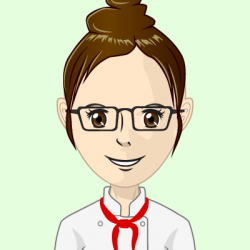Anxiety and fear - Tips
Tips for coping with anxiety and fear
Would you like some tips and advice how to deal with anxiety and fear?
This forum is a great place to explore several tips.
Looking for more support?
Overview of tips
All tips
Tip 1 - Visualize what you want
Visualize what you want.
Visualize how you want to be in certain situations, how you want to think, how you want to feel and how you want to act.
Think of a certain current situation where you often feel anxious. And visualize how you would want to feel. Imagine it vividly and try to really feel and experience it.
You are then practicing, in your mind and with your emotions, and you are preparing your body for this situation. You are creating new possibilities.
When the situation presents itself again in the future you have created a new framework, with which you feel differently, you think differently and you act differently.
Tip 2 - Fears are addictive - stop them
Fear brings you to obsessive thoughts and obsessive behaviour. They work as an addiction. So stop them as soon as possible wherever and whenever you can. Distract yourself, over and over again.
The more you give in to them, the more the fear, the obsessive thoughts and behaviours, will determine your life. If you do not stop them, they will eventually completely take over your life.
Like with every addiction, they will first only influence yourself, but soon also your surrounding. Do something about it. Find help when you do not manage to do it alone.
Tip 3 - Don't escape to alcohol or drugs
Do not escape your fears by using alcohol or drugs. It may seem like a way out and it may seem like it makes you more relaxed. But narcotic drugs can in fact even increase the fear.
Moreover, you might create an extra (addiction) problem by using alcohol and/or drugs.
Also escaping from fear by emotional eating is not a solution.
Tip 4 - Give space to your fear
You cannot control fears. They are a part of life. This does not mean that they cannot be very annoying. I also suffer from fear. After years of being bullied and belittled, I was rather alone and lonely then to make contact with others. I did not think I was worthy enough to listen to my feelings and express what the excluding and the belittling did to me.
Now, when I go to a place with unfamiliar people, I tell myself in a loving way that it is not so strange that I have fear of rejection. I take my feelings seriously and give space to the fear.
Tip 5 - Understanding Feelings Of Inadequacy
If you examine your psyche closely, you will uncover that you only feel inadequate (or less confident) in the areas of life that are lower on your unique list of priorities and values.
Instead of imposing self judgement and criticism on yourself, it is much wiser to look for the areas of your life that are truly the most meaningful to you. It is in these areas where you will recognize and honor your confidence and demonstrated ability.
All of us have both confidence and insecurity expressed equally in accordance in our value structure and in alignment with their most meaningful priorities.

Tip 6 - Do what make you scared
Do what makes you scared.
Sometimes you have more fear for the fear beforehand, then that will show afterwards.
Sometimes it is good to 'just do it' to see that it is not as bad as you thought it would be. Even if it is just a small part or a small step. Then you can challenge yourself to make a bigger step after that.
And be happy with that what works, however small it seems!
Tip 7 - Examine your thoughts
Examine your thoughts and turn them around. Ask yourself four questions:
1. Is it true?
2. Can you absolutely know it is true?
3. How do you react—what happens—when you believe that thought?
4. Who would you be without the thought?
Turn the thought around: then seek three specific, real examples how every reversal is true for you in this situation.
Tip 8 - Listen to what the fearful part of you wants to tell you
We all have different parts in us (sub personalities). Those different parts do not always agree with each other. For example on one side you want this, but on the other side you want something else.
Like this there are parts in you that are fearful. Also these parts have good intentions and often want to protect you.
In the past, this part was maybe very useful, but right now it is probably more like a burden.
Listen to what this fearful part of you wants to tell you and connect with it again. Accept in a loving way that this part is there and allowe it to be there. When this part feels heard and acknowledged, then there is space for change.
Tip 9 - A being present meditation can be invaluable
And these anxiety body clues are all on display when someone comes to consult with us because they are anxious.
Some of the most effective remedies for anxiety is knowing how to disentangle tense postures and increase the client's ability to more effectively recognise safety cues that are available but they are in the person's blind spot when scary kicks in.
For starters, a just sitting and noticing, being present meditation can be invaluable .
Allow the person focus gently on the shapes and colours of object both in the room and outside the room. Then follow up with a series of relatively short in breaths and long out breaths.
And notice the changes in the body so far and subsequently the thoughts and feelings.

Tip 11 - Don't eat or drink caffeine-containing products
Scientific research has shown that when you are easily anxious, it is better to not use caffeine-containing products, because this can increase the feelings of fear.
So better leave coca-cola, chocolat, coffee, black tea, energy drinks etc. from your diet.
You can test this, by doing it for 2 months. Keep track by writing a weekly diary with a score of your anxiety (1-10) and write down your fearful thoughts. Start with that one month before the cafeine free period and compare afterwards.
Tip 12 - Talk about it with others
Talk about your feelings of fear and try not to judge yourself. Talking about it with friends and family often gives space and helps to decrease stress. Conversations with others can also help you get a better understanding and insights about your personal situation.
Tip 13 - What is the worst that could happen?
Ask yourself the question: "What is the worst that could happen in this situation?" And "how bad is it actually when it would happen?" Your feelings are real, but they often do not match with the actual situation.
The truth is in general more pleasant then the scenario's that are playing in your head about what could happen.
Tip 14 - Recognize your excuses and loopholes
Recognize your excuses not to change.
Excuses or loopholes, give you a reason not to do things that you think are hard or scary (like dealing with your fears).
Examples of excuses that people use are:
- I do not have money for it.
- I do not have time for it.
- I am anyway not able to do it.
- I do not know you to do it.
- I tried already before.
- It is anyway no use.
- It is too much effort.
- I cannot fail.
- I will be rejected.
- I am not good enough.
Recognizable?
Learn to recognize the excuses you use. Excuses are not the same as the truth. They are just thoughts. You do not have to follow them.
Tip 15 - How to survive a panic attack
How to survive a panic attack:
* Focus on your breathing - hyperventilation makes your breathing worse.
* Relax your body - muscle tension makes it harder for your body to expel stress hormones.
* Recognise that you're having a panic attack - you are not dying or going crazy. This feeling will pass.
* Remember - that a panic attack always ends, it usually lasts 10 - 30 minutes.
* Distract your senses - touch something soft, smell something nice, look at something that makes you happy, listen to calming sounds or music.
* Don't be afraid to get professional help - if you experience recurring attacks
Tip 16 - How to quickly change your mood and mind states
So a simple and very easy natural way to change what's happening in your mind is to change what's happening in your body.
And it can be as simple as changing your breathing pattern - from shallow rapid breathing to slower deep breathing.
Or if your are feeling glum and sitting down get get up and get your body moving and experience the positive changes almost immediately.
Enjoy!
Add your own tip

Click the name of a town to see which counsellors / therapists are available.
- Ashburton
- Auckland
- Blenheim
- Cambridge
- Christchurch
- Dunedin
- Ellerslie
- Epsom
- Gisborne
- Hamilton
- Hastings
- Hibiscus Coast
- Invercargill
- Kapiti Coast
- Lower Hutt
- Masterton
- Motueka
- Mount Maunganui
- Napier
- Nelson
- New Plymouth
- North Shore
- Orewa
- Palmerston North
- Papamoa
- Paraparaumu
- Porirua
- Queenstown
- Richmond
- Rotorua
- Tauranga
- Upper Hutt
- Wanaka
- Wellington
- West Auckland
- Whangaparaoa
- Wanganui
- Whangarei
Is your town not in the list above? Search on town >>
- ✓ 100+ Counsellors
- ✓ In New Zealand
- ✓ Face-to-face & Online
Counselling Rolleston
08-02-2026:
Counselling Christchurch
08-02-2026:
Counselling Whangarei

